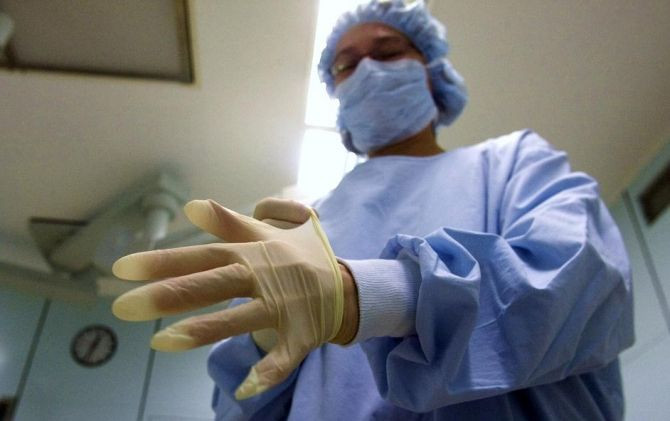Antibiotics May Be an Effective Alternative to Surgery for 64% of All Appendicitis Cases

Two-thirds of appendix removals may be unnecessary, according to a new UK study suggesting that a course of antibiotics may be just as effective and safer for patients with uncomplicated appendicitis.
Scientists reviewed previous studies with a total of 900 patients, and among them, 470 participants were treated with antibiotics and 430 were treated with an appendectomy, the “gold-standard” of treatment for an inflamed appendix since 1889.
Researchers said that uncomplicated appendicitis, when an inflamed appendix has not led to other problems like a serious infection of the organ being torn, make up 80 percent of all cases, while the other 20 percent are complicated cases where surgery would be the only option.
The findings show that 80 percent of those who were given antibiotics did not suffer another episode of appendicitis within 12 months of their course, thus researchers concluded that about 64 percent of all appendectomies could be considered unnecessary.
Compared to surgery, first-line antibiotic treatment had a 39 percent lower risk of complications compared to getting an appendectomy, excluding those who were started the drugs but still needed surgery.
About a fifth of participants treated with antibiotics had symptoms return, but of those 19 percent had complicated appendicitis.
There was no difference between the surgery and antibiotics group on the length of the hospital stay.
Researchers said that the findings show that "initial antibiotic treatment merits consideration as a primary treatment option for early uncomplicated appendicitis."
"Given the increase in nonperforated appendicitis diagnosed with more frequent use of computed tomography and laparoscopy, a careful 'wait, watch, and treat' policy may be adopted in those patients considered to have uncomplicated appendicitis or in whom the diagnosis is uncertain, as in these patients correct diagnosis rather than an early appendectomy is the key," they wrote.
Researchers said that antibiotic treatment may have been overlooked largely on the basis of tradition rather than evidence, and that routine early appendectomy was based on the "dogma" that "appendicitis is a progressive disease, from an uncomplicated stage to one with complications of gangrene, perforation, or peritonitis, and that any delay in treatment increases the risk of complications."
Overall the findings show that there were no differences between the drug and surgery groups in treatment efficacy, length of stay, or the risk of developing complicated appendicitis.
Dr. Olaf Bakker of the University Medical Center Utrecht in the Netherlands wrote in an accompanying editorial that initially the findings seem to contradict the accepted dogma of prompt appendectomy, but he noted that using antibiotics for initial treatment had "major certain disadvantages" like the need for delayed appendectomy in some patients with persistent symptoms, the 20 percent likelihood of recurrence within the first year and the need to perform a CT scan on all patients to determine uncomplicated cases by ruling out perforated appendicitis before starting antibiotics.
However Bakker acknowledged the disadvantages of appendectomy like the need for general anesthesia and the chance of surgery-related complications like wound infection.
The authors "appropriately circumspect in concluding that conservative treatment merits consideration as a primary treatment option," Bakker wrote. "However, until more convincing studies and longer-term results are published, appendectomy will probably continue to be used for uncomplicated appendicitis."
Other experts say that antibiotics may be cheaper than surgery, but if patients still need an appendectomy after antibiotics have failed, the total cost might end up being higher, Dr. Carl Schulman, an associate professor of surgery at the University of Miami School of Medicine in Florida, told HealthDay.
The research was published in the British Medical Journal.



























